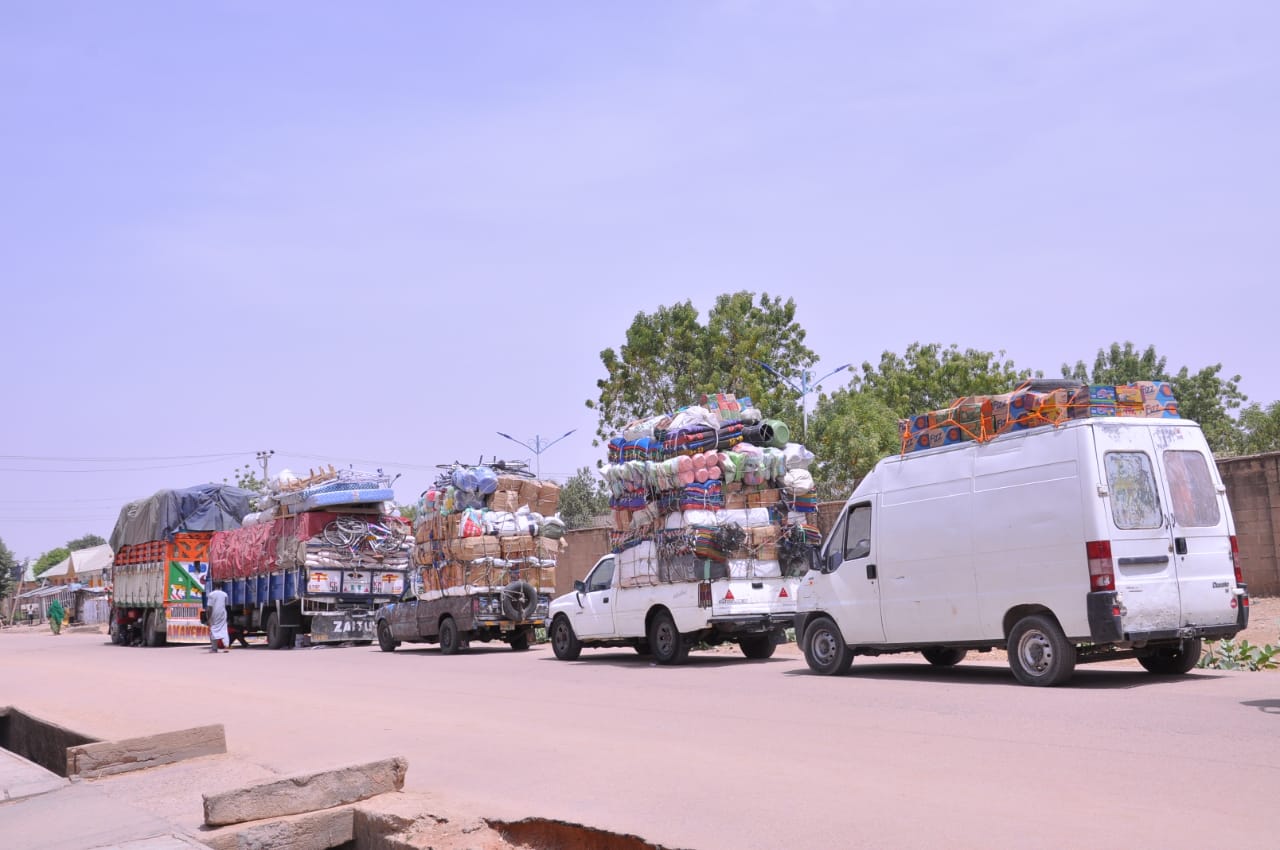In a concerted effort to combat food inflation and mitigate the cost of living crisis, the Federal Government announced on Tuesday that it had intercepted a total of 141 trucks attempting to smuggle grains and essential staples to neighboring countries including Niger Republic, Chad, Cameroon, and the Central African Republic.
Bashir Adeniyi, the Comptroller-General of the Nigeria Customs Service, revealed that within a span of two weeks, approximately 120 trucks carrying food items were apprehended within Nigeria’s borders. Additionally, the Economic and Financial Crimes Commission (EFCC) halted 21 food trucks from departing the country on Tuesday.
As Adeniyi briefed the House of Representatives in Abuja on Tuesday about the measures being implemented to ensure food security, truck drivers, who have been frequent targets of attacks by criminals, threatened to initiate a strike if such incidents persist.
The surge in attacks on trucks and warehouses, primarily owned by manufacturers and private sector entities, has coincided with escalating food inflation and cost of living crises nationwide. Recent incidents include the looting of food items from trucks stuck in traffic along the Kaduna Road in Niger State, as well as attacks on warehouses in the Federal Capital Territory, where rice, grains, and relief items were stolen.
The continued violence prompted concerns from the organized private sector, warning that these attacks could lead to a shutdown of industries across the country.
Adeniyi reiterated the government’s commitment to addressing food scarcity and smuggling, emphasizing President Tinubu’s directive to redirect seized food trucks to local markets to stabilize prices and ensure availability of essential commodities.
Regarding the temporary halt in the auction of seized grains, Adeniyi cited the tragic stampede incident at the NCS Old Zonal Headquarters in Lagos, which claimed several lives. He assured lawmakers that the lessons learned from the incident would inform the resumption of the auction process in due course.
In a parallel effort to combat smuggling, the Maiduguri zonal command of the EFCC intercepted 21 trucks loaded with food and non-food items destined for neighboring countries. These interceptions underscore the government’s determination to tackle smuggling activities.
Meanwhile, the Minister of Agriculture and Food Security, Abubakar Kyari, attributed the early onset of food scarcity to various factors, including smuggling, flooding, the naira redesign policy, and the lingering effects of the COVID-19 pandemic.
In response to the challenges faced by farmers, Kyari assured Nigerians of the government’s commitment to bolstering agricultural production and stabilizing food prices. Measures include engaging the World Food Programme to assist farmers, promoting irrigation farming, and facilitating access to tractors for agricultural activities.
Amidst concerns over attacks on truck drivers, the National Association of Road Transport Owners (NARTO) warned that continued assaults could lead to disruptions in the transportation of food and fuel. Yusuf Othman, NARTO’s National President, called on state governments to address the issue urgently to avert potential food shortages across the country.
The association emphasized the need for enhanced security measures to safeguard truck drivers and ensure the seamless distribution of essential commodities, urging the public to refrain from engaging in violent acts that disrupt transportation networks.
As stakeholders collaborate to address these challenges, efforts must be concerted and holistic to ensure lasting solutions and safeguard the nation’s food security.


